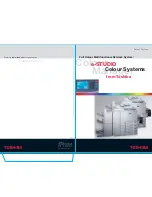
Chapter 6. Red Hat Network Website
59
This command performs all the actions that the
Red Hat Network Registration Client
does. Do not
run the
Red Hat Network Registration Client
program after running
rhnreg_ks
.
A System Profile, including software and hardware information, is created for the system and sent
to the RHN servers along with the unique activation key. The system is registered with RHN under
the account used to generate the key, entitled to the RHN Enterprise service offering, subscribed to
the RHN channels selected during key generation, and subscribed to the RHN system groups selected
during key generation. The system will not be subscribed to channels that contains packages not
suitable for the system. For example, a Red Hat Linux 7.2 system can not be subscribed to the Red
Hat Linux 7.1 channel.
The unique Digital Certificate for the system is generated on the system in
/etc/sysconfig/rhn/systemid
.
6.4. Systems
If you click the
Systems
link on the left navigation bar, the
Systems Overview
page appears. The
pages in the
System
category allow you to select systems so that you can perform actions on them
and create system profiles.
6.4.1. System List
As shown in Figure 6-3, the
System List
page displays a list of all your registered systems.
The
System List
contains several columns for each registered system:
•
Select
— Only entitled systems can be selected.
•
Alerts
— Shows which type of Errata Alerts are applicable to the system:
•
— Critical errata available, update
strongly
recommended
•
— Updates available and recommended
•
— System not checking in properly
•
— System not entitled to any update service
•
— System is up-to-date
•
Errata
— Total number of Errata Alerts applicable to the system.
•
Pkgs
— Total number of package updates for the system. Includes packages from Errata Alerts as
well as newer packages that are not from Errata Alerts. For example, if a system is subscribed to the
Red Hat Linux 7.1 i386 channel that contains version 2.5.4 of a package because that is the version
that shipped with Red Hat Linux 7.1, but the system has version 2.5.2 of the package installed, the
newer version of the package will be in the list of updated packages for the system.
•
System Name
— The name of the system as configured when registering the system. The default
name is the hostname of the system. Clicking on the name of a system takes you to the
System
Details
page for the system. Refer to Section 6.4.2 for more information.
•
Base Channel
— The base channel for the system. To view all the channels for a system, go to its
System Detail
page by clicking on the name of the system in the
System List
.
•
Entitlement
— Whether or not the system is entitled.
Summary of Contents for NETWORK BASIC - USER REFERENCE GUIDE 3.3
Page 1: ...Red Hat Network Basic User Reference Guide 3 3...
Page 14: ...14 Chapter 1 What is Red Hat Network...
Page 27: ...Chapter 2 Red Hat Network Registration Client 27 Figure 2 15 Text Mode Welcome Screen...
Page 28: ...28 Chapter 2 Red Hat Network Registration Client...
Page 34: ...34 Chapter 3 Red Hat Update Agent Configuration Tool...
Page 48: ...48 Chapter 4 Red Hat Update Agent...
Page 52: ...52 Chapter 5 Red Hat Network Alert Notification Tool...
Page 70: ...70 Chapter 7 Red Hat Network Daemon...
Page 72: ...72 Chapter 8 Using Red Hat Network with Red Hat Linux 6 2...
Page 78: ...78 Glossary...
Page 82: ......
















































